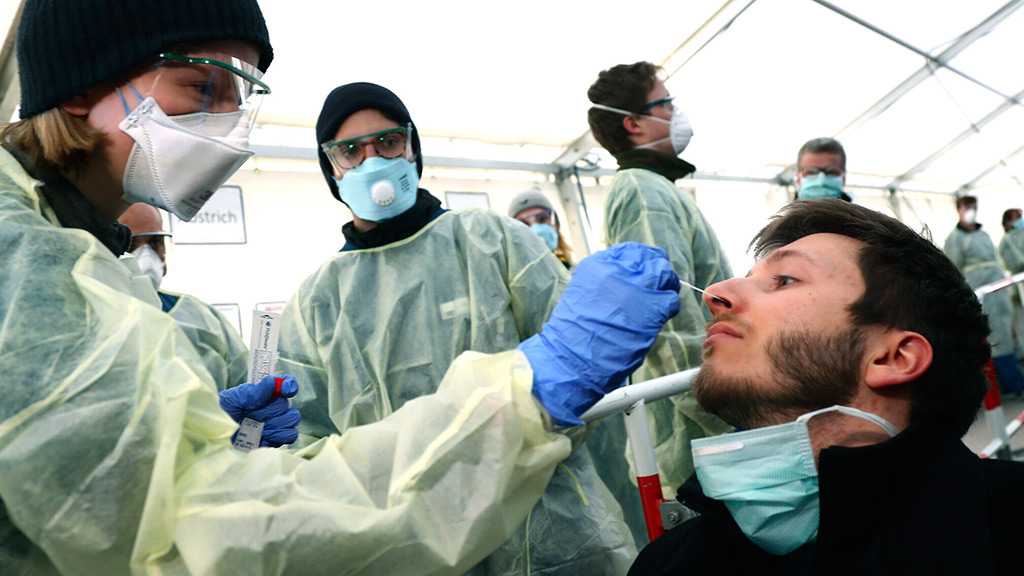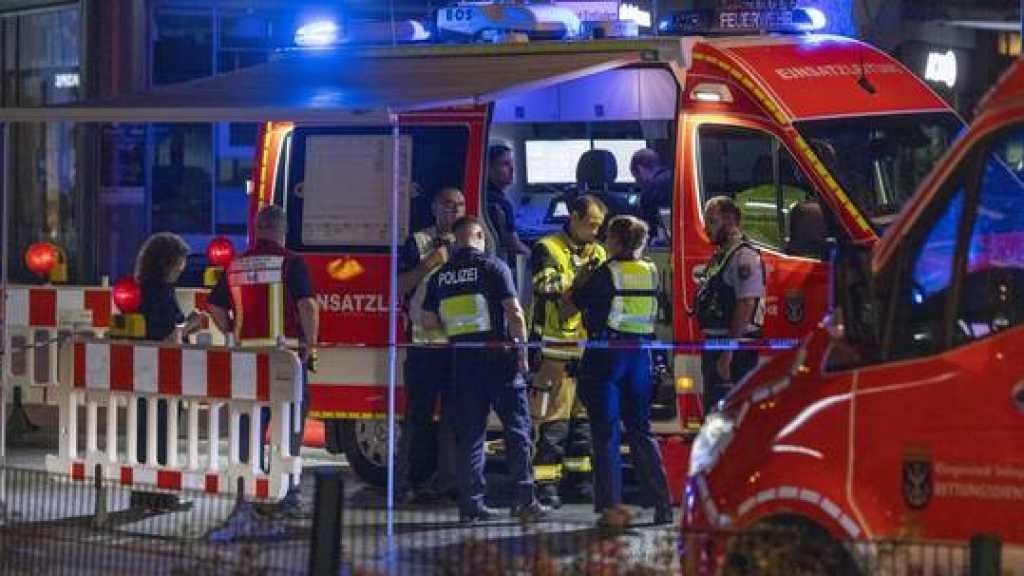
Coronavirus Outbreak: Germany’s Cases Jump to 79,696 as 1mln Infected Globally

By Staff, Agencies
Germany's death toll from coronavirus broke through 1,000 today while the number of infections reached nearly 80,000.
The Robert Koch Institute announced another 145 deaths in its latest figures this morning, a similar jump to yesterday's 140 and Wednesday's 149.
It brings Germany's death toll from 872 to 1,017, with a mortality rate of 1.3 per cent of cases – a figure which is still low but is rising relentlessly.
The total infection count rose by 6,174, marginally higher than yesterday, taking the tally from 73,522 to 79,696.
The latest figures show that 592 of the 1,017 deaths have come in the two southern states of Bavaria and Baden-Wuerttemberg which are closest to Italy.
Munich, the capital of Bavaria, has recorded more than 3,000 virus cases by itself, although only five deaths.
There are also 3,200 cases in Berlin and nearly 2,600 in Hamburg, official figures show.
The fatality rate of 1.3 per cent, or one death per 77 cases, is lower than that in Italy [12.1%], Britain [8.7%], France [7.6%] or Spain [9.1%].
The low rate is thought to be linked to mass testing, meaning that many people with mild symptoms are added to Germany's tally but missed elsewhere.
However, the German rate has been ticking up daily for more than two weeks, and is up from 0.6% just a week ago.
The head of the German hospital federation said yesterday that medical centers had increased their number of intensive care beds to 40,000.
Gerald Gass told the Rheinische Post that 30,000 of the beds are equipped with ventilators.
Berlin has urged hospitals to double their capacity to as much as 56,000 to deal with a potential surge.
Germany has also taken in more than 100 seriously ill patients from other EU nations, gaining experience in handling virus cases.
Authorities have ordered most shops shut, schools closed and imposed a ban on public gatherings of more than two people up to April 19 at the earliest.
Airline giant Lufthansa has placed 87,000 workers - more than half its workforce - on a government-backed shorter hours scheme.
Among the group's 135,000 employees, cabin crew, ground crew and for the first time ever pilots are all affected by the measure, a spokesman said.
Some 62,000 of the employees affected are in Germany, doubling the number given on Friday of those who would work shorter hours until September.
As well as the Lufthansa brand and its low-cost sibling Eurowings, the group includes smaller carriers such as Austrian, Brussels Airlines and Swiss.
German state-owned investment bank KfW says it has received requests for more than €10billion [£8.7billion] in loans.
The bank says it could issue at least €50billion [£44billion] to ease the impact of the economic standstill.
'A huge wave' of requests is likely to follow next week now the bank's IT systems are fully set up to deal with the lending scheme, KfW president Guenther Braeunig said.
Some 2,500 requests have already arrived, and 'at least 50 billion euros, maybe 100 billion' in loans are likely in the coming weeks, Braeunig said.
The bank issued €77billion [£67billion] of guaranteed credit over the whole of 2019, a comparatively normal economic year.
Comments

Germany Withdraws Troops from Niger
3 months ago
Three Dead after Stabbing Attack in Germany
3 months ago
